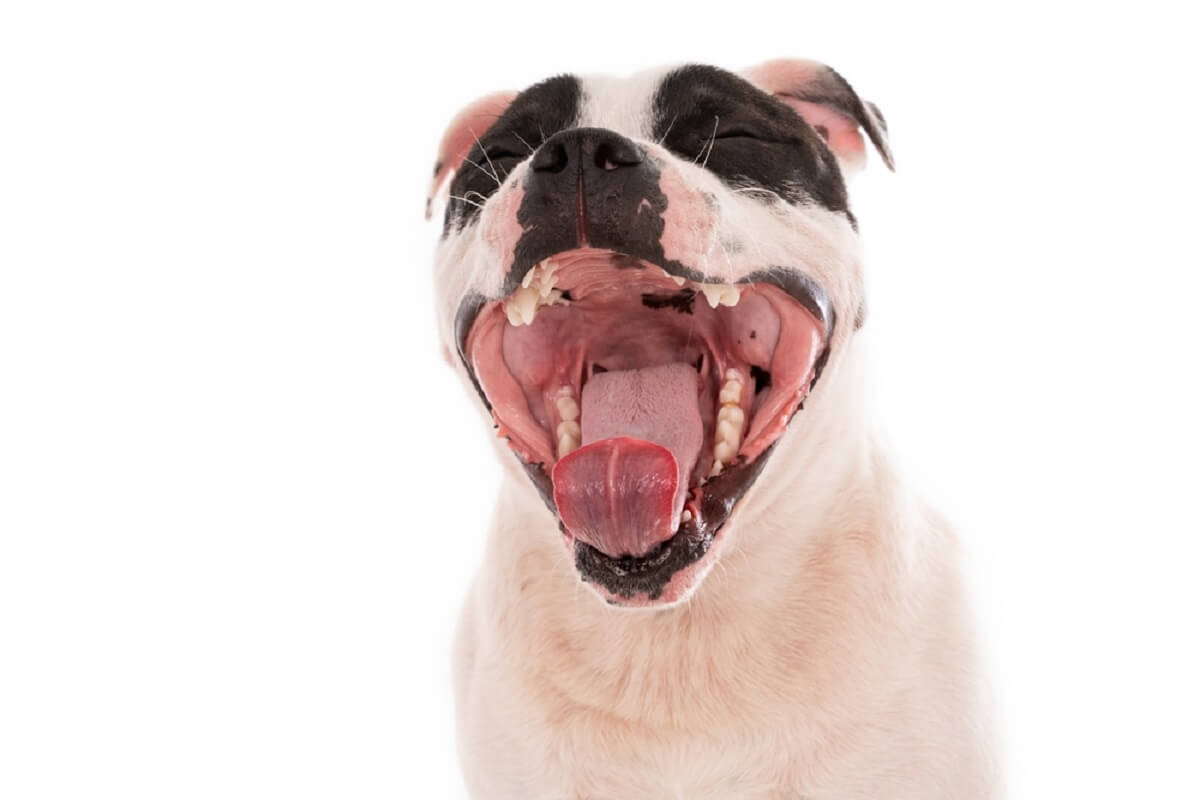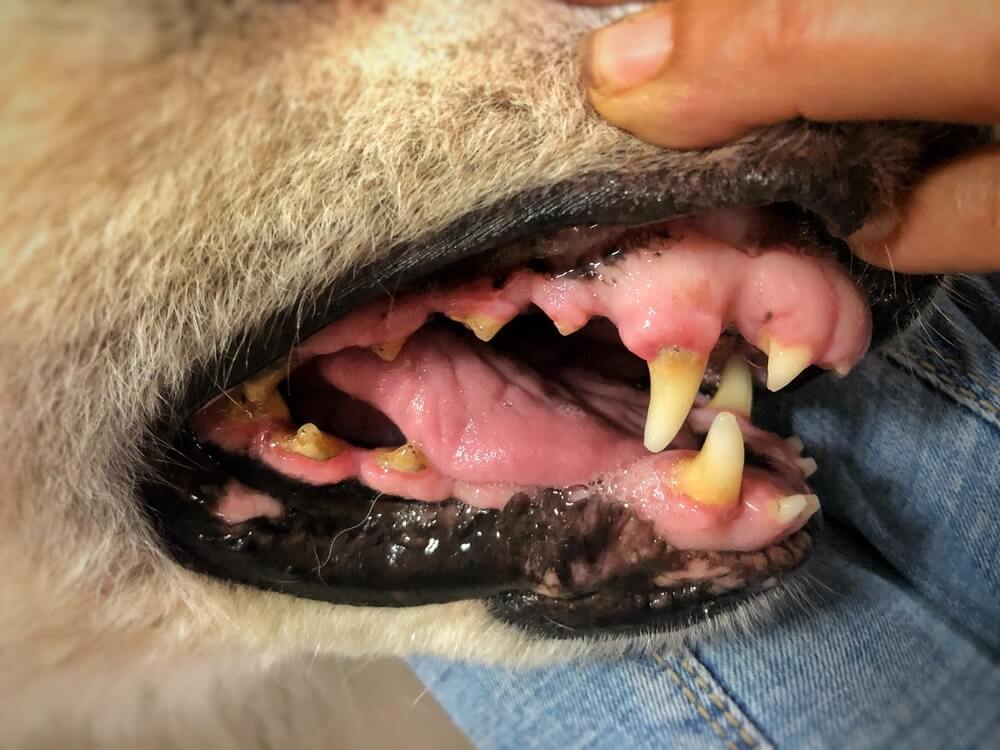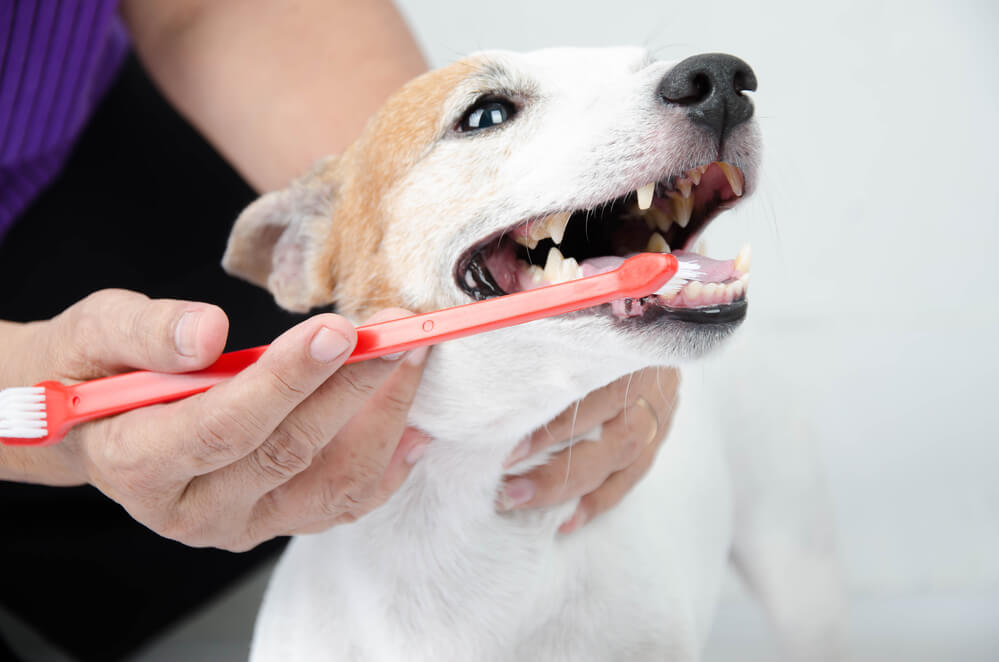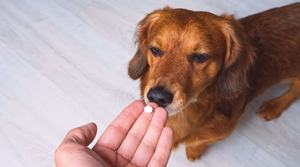
Reviewed & Fact-Checked by
Dr. Chyrle Bonk
Veterinarian (DVM)
Learn more about our Veterinary Review Board »
Tonsils and adenoids do serve a purpose but can be very troublesome. While they both are bodily components designed by nature to protect against infection, when they lose that fight, the resulting infection can be miserably painful.
But what about dogs? Do dogs have tonsils? Are they affected in the same way?
Do Dogs Have Tonsils? And Adenoids?

Dogs do indeed have tonsils. And, just like humans, they have two of them. The tonsils are positioned in the back of the dog's throat in little pouches called crypts. They may expand as a result of inflammation or when battling an infection.
Tonsils that are swollen and red will appear to burst out of their crypts and can be seen fairly easily in the back of the throat. To determine if your dog has swollen tonsils, you should be able to shine a light in their mouth and see the problem quickly, just as you might for a human child.
It is believed that tonsils in dogs serve the same purpose as they do in humans. However, tonsillitis is far less common in canines than it is in their human companions.
In fact, tonsillitis is very uncommon in dogs and when it does occur it is usually seen in smaller breeds.
Dogs also have adenoids.
Adenoids, in both dogs and humans, are a small piece of tissue located at the very end of the nasal passage. Like tonsils, their purpose is to try to keep out bacteria and prevent infection. And, like tonsils, if they fail to do that the result can be a painful infection. The instance of this is, once again, far rarer in dogs than it is in humans.
Can Dogs Get Tonsillitis?
For some humans, especially in childhood, tonsillitis can become an annual problem that may eventually lead to the need for a tonsillectomy, or the safe removal of the tonsils. While, as we mentioned, its occurrence is far less frequent in pups, dogs can get tonsillitis.
In dogs, it is usually a secondary, rather than a primary issue. It is one that occurs as a result of some other health issue that will need to be addressed as well.
"Tonsilitis is often a result of a bacterial infection somewhere else in the body, but is most commonly from dental disease. The bacteria involved in plaque and tartar formation can travel to the tonsils and cause an infection."
- Dr. Chyrle Bonk, DVM
There are some misconceptions about tonsilitis in dogs.
One is that it is contagious between humans and dogs. The other is that it is the same as strep throat. Neither are true. Your dog can not get tonsilitis from your child and it is not the same as strep throat.

Keep your dogs teeth clean with these ten tips for better dental health in dogs.
Other health issues that should only be treated by your vet that may lead to secondary tonsillitis can include frequent vomiting and certain cancers.
Watch your dog for signs of a sore throat as difficulty swallowing, eating less, drinking more or whining.
Take Note
The most important element in dental care for your dog is daily brushing.
If you've recently adopted a senior dog, get your vet to check what the condition of the dog’s teeth and gums are. Unfortunately, many senior dogs who haven’t had the benefit of good dental care may suffer from periodontal, or gum disease.
Can Dogs Get Strep Throat?
Yes, dogs can get strep throat, and no, it is not the same thing as tonsillitis, either in dogs or in humans. As a pet - and/or human parent, it's very helpful to understand the difference.
It’s also important to note that strep throat in dogs is very rare and isn’t the same as strep throat in people.
Tonsillitis is a condition in which the tonsils become inflamed.
Streptococcus pyogenes causes strep throat, and it is a specific type of bacterium. The tonsils are normally quite inflamed when your dog or child has strep throat, and the inflammation may spread to the rest of the throat, but it is a separate and different condition.
Viruses such as the common cold or many strains of flu can also cause sore throats, but they just irritate the throat all around the tonsils, not the tonsils themselves.
The treatments are different too. In the case of tonsillitis or strep throat, the infections often don’t go away by themselves, a course of antibiotics will be needed. Antibiotics are used to treat bacterial infections, not viruses. In the case of a virus these will need to resolve by themselves with supportive care.
This is the reason why, if you take your human child to a pediatrician, or you go to a doctor yourself, a throat culture will be taken to properly diagnose any throat problems before antibiotics are prescribed, and your vet will do the same.
In some very rare cases, it is believed that strep throat has been spread from a human to a dog, but this happens so rarely that statistically the instance would be zero.
So once again you don't have to quarantine yourself or your kids away from the comfort of your furry friend if you have strep throat.
Dogs can, however, spread strep throat to one another, via saliva, so an infected dog should not share their water or food dish with other dogs until they are better.
Can Dogs Have Tonsils Removed?
A tonsillectomy for dogs is possible, but it is a rare procedure. Such operations are only considered for humans in the case of severe, frequently recurring bouts of tonsillitis. Removing the tonsils takes away a layer of natural infection prevention for life, so it's not something done lightly. This is true of canines too.
Were it considered necessary for a dog to have their tonsils removed, it would need to be a procedure carried out by an ENT specialist, just as it would be in humans.
Keeping Your Dog's Mouth Safe From Bacteria

While tonsillitis is rare in dogs, if and when it is seen it is most often the result of poor dental health.
Many pet parents do not take the best care of their dog's teeth and gums because doing so can be very difficult. This is especially true if their dog puts up a serious fight if a toothbrush is randomly inserted into their mouth (or eat the toothbrush.)
However, dental health is so important for dogs.
The secondary infections caused by infected teeth and gums in dogs can do much more harm than inflame the tonsils.
Dental care is something all pet parents should learn to do properly and be as diligent about as they are for themselves. Otherwise, consider regular professional dental cleanings for your pet to help prevent dental disease and other issues.
Here’s a YouTube video showing how one veterinarian recommends you do it.
Never use human toothpaste, as it may contain ingredients that are harmless to us but toxic for your dog. Choose a canine specific dog toothpaste and try to get into the habit of brushing your dog's teeth at least once a week.
Beef- or chicken-flavored toothpaste will make your dog think he is getting a treat. Doggie toothpaste, toothbrushes, and other devices for at-home teeth cleaning are widely available, here are some of our favorites.
You can also buy special dog treats that help keep your pup's teeth clean between brushes, and these also have the added benefit of helping keep your dog's breath a little fresher. Here some of our favorites.
Ensuring that they have access at all times to lots of clean water will help as well.



